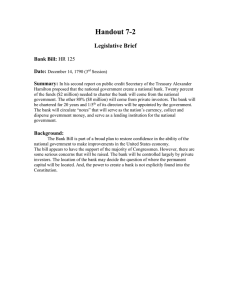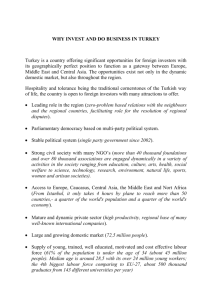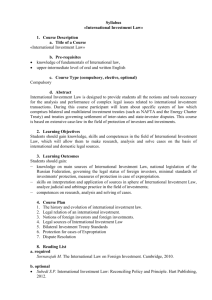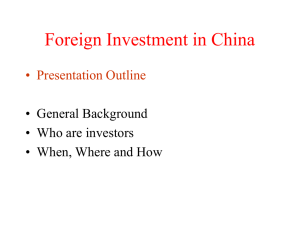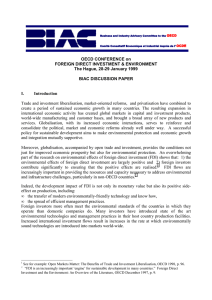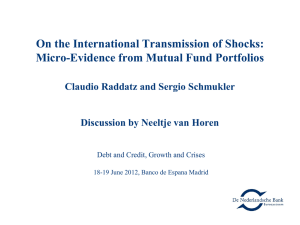Can Investment Treaties Make Foreign Investment Safe? Louis T. Wells
advertisement
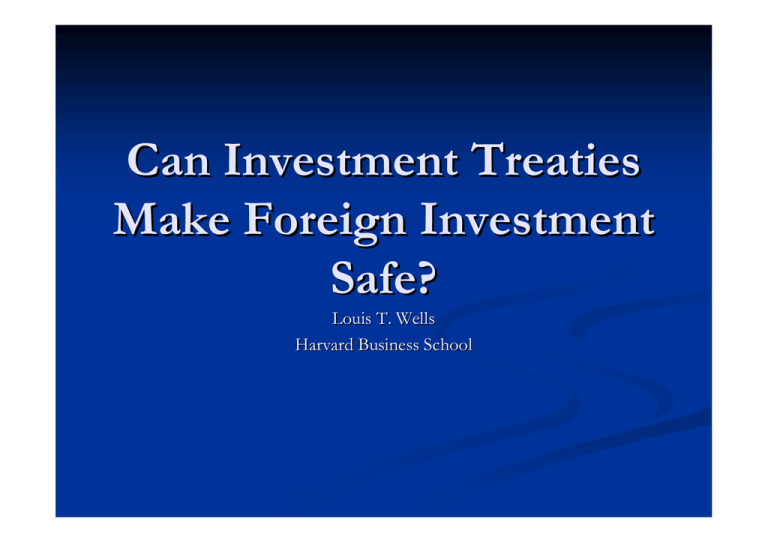
Can Investment Treaties Make Foreign Investment Safe? Louis T. Wells Harvard Business School More Arbitrations between Investors and Host Governments 1. More bilateral and regional treaties 2. Arbitration at ICSID 1972-1982 1982-1992 1992-1996 1997 -2004 10 cases 18 cases 8 cases 71 cases 3. Why? Increased private FDI in infrastructure/currency crises Increase in raw material prices Notable Absences and Hesitancies 1. Absent: Investors with other interests in host country 2. Hesitant: Investors with strong interest in continuing in industry elsewhere in developing world 3. Japanese investors or Japanese-led consortia Bitterness, reputation, culture? Resistance on State Side 1. Indonesia: court battles for 8 years 2. Argentina challenging judgments 3. Venezuela/Bolivia/Ecuador threatening partial or complete withdrawal Problems (1) 1. Rigid view of contract Much more so than in investors’ home countries Reluctance to consider Crises Other changed circumstances Corruption/incompetence in contracts Environmental protection, labor standards, etc. Problems (2) 2. Conflicting decisions => unpredictability Examples Frequently cited: Lauder in Czech Republic Current: Argentine cases on “necessity” Award standards: KBC vs Argentine cases No process to resolve conflicting decisions Problems (3) Lack of sympathy with national goals (environment, labor rights, etc.) Problems (4) 4. Asymmetry (company has right to go to arbitration; host government does not) Who initiates renegotiation demands? Relation to bidding Problems (5) 5. Bitter, long, and expensive process with damages orientation Legal bills Years to complete No future of business in country Changes to System 1. Appeals process Resolve conflicting decisions => common law Broadly representative => less rigid interpretation, evolving standards for environmental regulations, etc. 2. Symmetry Perception of fairness Less rigid interpretation of contract 3. Encourage settlement Investment Treaties Can Improve FDI Safety, But Reform will be a Difficult Task 1. 2. 3. 4. Importance of property rights Failure of multilateral negotiations Existence of 2,000+ bilateral agreements Entrenched interests in place

